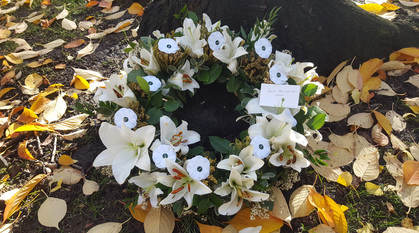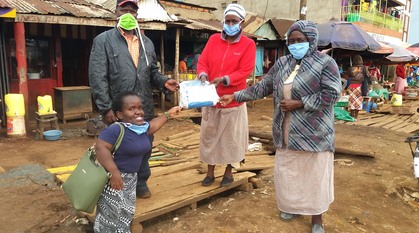Reclaim the sky for peace
This Persian New Year fly kites not drones says Ellis Brooks, as he calls for solidarity with people affected by armed drone strikes.
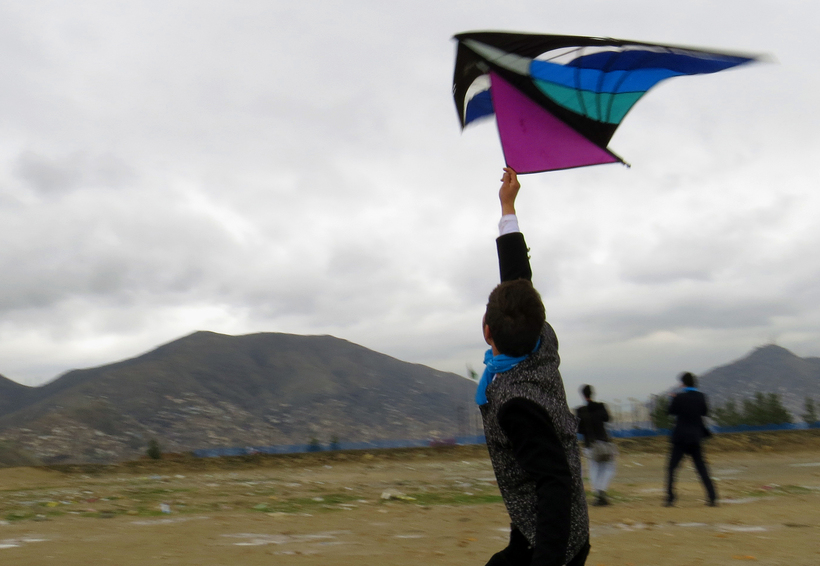
"The [drone pilot] might be happy when he's flying a drone, like when the kids are flying kites, so he doesn't feel guilty about it..." – Primary school pupil, London.
For me, the best conversations about peace happen with young people. The stories, facts and arguments shared in a
Fly Kites Not Drones workshop raise many important questions.
What's it like to be a child in Afghanistan? What does the drone pilot feel? What does international law say? These conversations reveal an empathy and the kind of moral reasoning I'd love to hear expressed by parliamentarians or in the media.
Supporting peace in Afghanistan
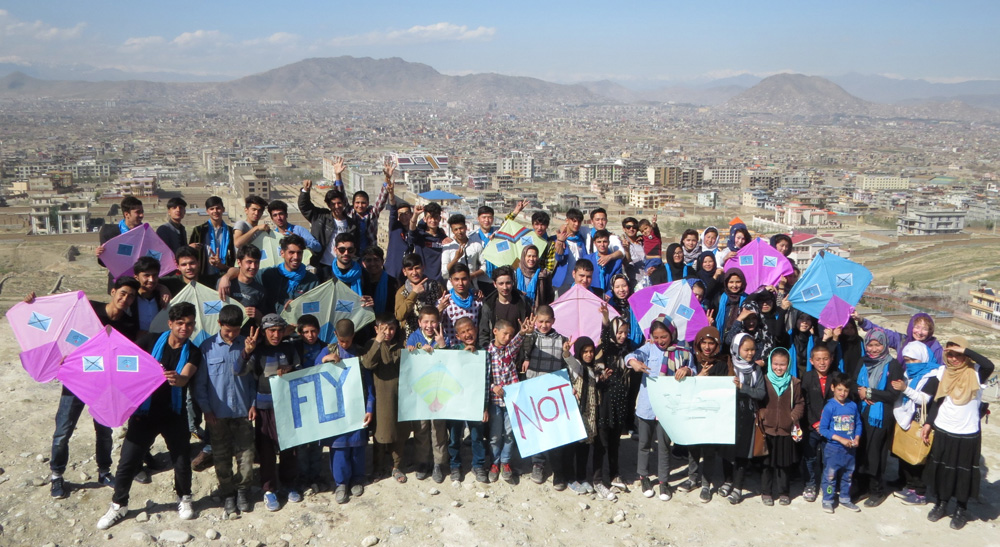
Fly Kites Not Drones is a creative non-violence project for young people. It exists because of a group called Afghan Peace Volunteers (APV).
Raz, a member of the APV, describes how his family was devastated by a drone strike: "In my village, a drone attack killed my brother-in-law and four of his friends. A beautiful life was buried and the sound of crying and sorrow arose from peaceful homes."
Raz's 9-year-old nephew, Aymel, was left without a father. His is sadly a familiar story in Afghanistan, where numbers of drone strikes have taken place. We share Aymel's story as part of our schools project, discussing how Aymel now fears a clear blue sky.
For him, what was the perfect weather for kite-flying is now the perfect weather for drone strikes.
Killers or protectors?
Drone warfare is thriving. Since 2014, UK drones have been involved in over 2,000 missions, 368 air strikes, and the targeted assassination of at least one British citizen. If you pay taxes in Britain, your money helps to pay for this.
When Britain ordered its latest batch of drones, 'Reapers' were rebranded as 'Protectors'. The new moniker creates rich debate in the classroom: are drones killers or shields? Can they be both?
The government rationale is that a drone strike today saves lives tomorrow. This is a hard narrative to sustain. Estimates suggest up to 80% of people killed by drone strikes are not the intended target.
Secretary of State for Defence Gavin Williamson remarked, "Quite simply, my view is a dead terrorist can't cause any harm to Britain… We should do everything we can to destroy and eliminate that threat."
Research from Reprieve estimates that 28 people die for each 'terrorist' targeted and killed in a drone strike. Amnesty International reported on Mamana Bibi, a Pakistani grandmother killed because she happened to be near a Taliban commander who made a phone call. The satellite phone he was using enabled him to be targeted by the drone. The commander had moved by the time the strike was called in. Bibi, and many others, were killed from the sky via targeting systems “based on metadata".
Violent inputs and violent outcomes
It is hard to look for peace when surrounded by violence, but this is what Raz and many others in Afghanistan seek. The Afghan Peace Volunteers continue to work across Afghanistan to support people facing this daily fear.
As Raz says: "When I play kites, I feel so happy and free. I wish to fly like a kite, without borders."
His message to 'the ordinary people of the world' is: "to listen and become aware of drone warfare because what international governments say about using drones to kill terrorists is not true."
A message of solidarity
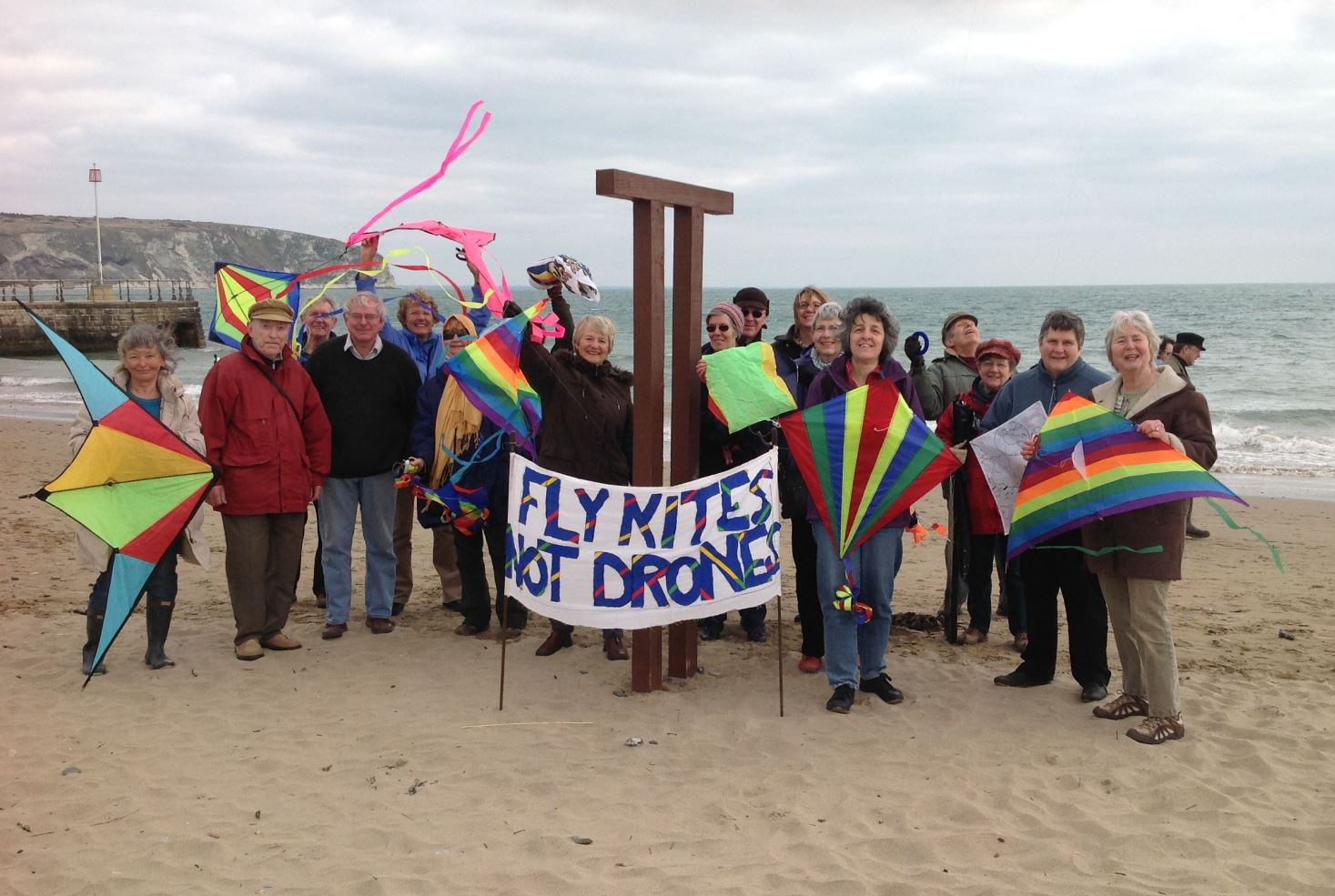
As a message of solidarity to the people facing drone warfare and its consequences, join us and fly kites not drones this Nao Roz (Persian New Year) 18–25 March.
As citizens of any age, we need to engage with the decisions made in our name in the age of drone warfare.
Find out about Fly Kites Not Drones events happening in March
